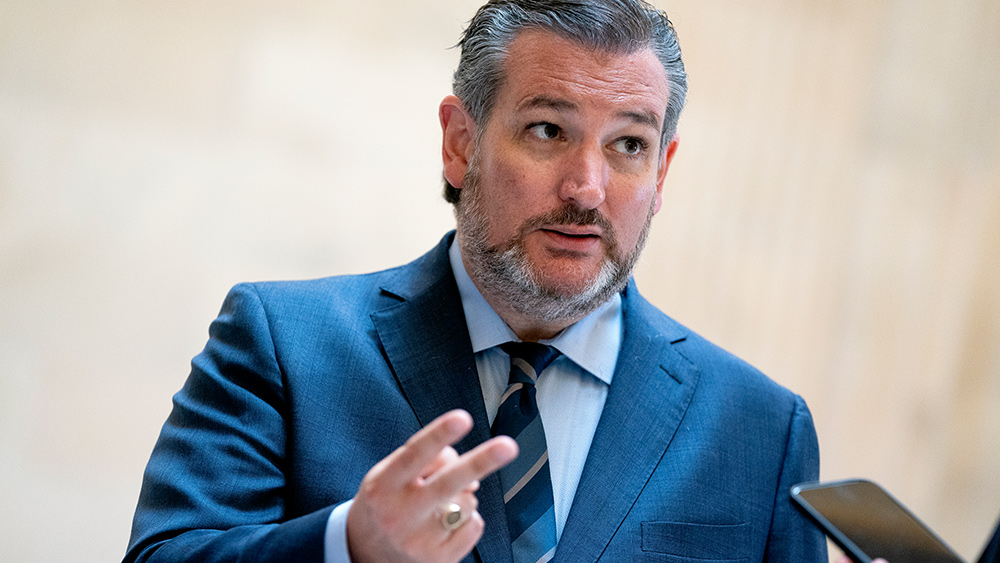 Parler
Parler Gab
Gab
- Chief Justice John G. Roberts Jr. is facing scrutiny for his close personal relationship with Norm Eisen, a Democratic legal strategist and former Obama administration official involved in prosecuting President Donald Trump and his allies.
- The controversy arose after Eisen revealed that Roberts stayed at his 150-room estate in the Czech Republic for a week, raising concerns about potential judicial conflicts of interest.
- The revelation has sparked criticism, particularly from conservative circles and legal watchdogs, with some arguing for Roberts' recusal from Trump-related cases and others demanding his resignation.
- Eisen is known for his role in implementing "color revolution" strategies and has been a key figure in the impeachment proceedings against Trump, drafting articles of impeachment and serving as special counsel in the Ukraine impeachment.
- The relationship between Roberts and Eisen has raised significant questions about judicial integrity and public trust, with critics arguing that it undermines the perception of judicial neutrality and erodes public confidence in the Supreme Court.
A week in the Czech Republic: The revelation
In a recent interview with Pantsuit Politics LLC, Norm Eisen, who served as U.S. Ambassador to the Czech Republic and is known for his role in the impeachment efforts against Trump, confirmed the close relationship. "I know the chief justice well. He stayed when I was ambassador, stayed under my roof, came and spent a week with us. We worked on American and European rule of law issues together," Eisen stated. The revelation has sparked a firestorm of criticism, particularly from conservative circles and legal watchdogs. Critics argue that Roberts' personal ties to Eisen, a figure deeply involved in legal strategies against Trump, create a "blatant, in-your-face conflict of interest." Political commentator The Researcher tweeted, "John should resign or recuse himself from all of the lawsuit cases that Norm and his partners have filed that are working their way to the SC."Norm Eisen: The legal architect
Norm Eisen's background is steeped in legal and political activism. He is widely recognized for his role in implementing "color revolution" strategies, which involve coordinated legal, media and political pressure to challenge the legitimacy of sitting governments. Eisen's involvement in the Transition Integrity Project, which conducted war games predicting a contested election scenario unfavorable to Trump, further underscores his influence in shaping the legal landscape against the former president. Eisen's efforts have been multifaceted. He has been a key figure in the impeachment proceedings against Trump, drafted articles of impeachment and served as special counsel in the Ukraine impeachment. His work has often been described as part of a broader "lawfare" strategy, using legal means to achieve political ends.Judicial integrity and public trust
The relationship between Roberts and Eisen has raised significant questions about judicial integrity and public trust. Chief Justice Roberts has previously been linked to a small group of federal judges with deep ties to cases targeting Trump, including U.S. District Judges James Boasberg, Beryl Howell and Amit Mehta, as well as Supreme Court Justice Ketanji Brown Jackson. Roberts appointed Boasberg to the Foreign Intelligence Surveillance Court (FISA Court) in 2014, a role that later involved authorizing surveillance related to the Trump campaign and administration. Roberts' public rebuke of Trump after the president called for the impeachment of several federal judges involved in politically charged prosecutions has further fueled suspicions of bias. Critics argue that Roberts' comments, combined with the Eisen revelations, erode the perception of judicial neutrality.Calls for recusal and resignation
The mounting pressure on Chief Justice Roberts to address the implications of his relationship with Eisen has led to calls for his recusal from all Trump-related cases. Some, like The Researcher, have gone further, demanding Roberts' resignation. Mike Benz, a former State Department official and cyber security researcher, has amplified these calls, questioning the nature of the work Roberts and Eisen conducted during their week together in the Czech Republic. "Norm Eisen and John Roberts worked on American and European rule of law issues," Benz said, "but what exactly did they work on? These so-called 'rule of law' initiatives often mask power grabs over courts and legal systems."Conclusion
The revelation of Chief Justice John G. Roberts' close ties to Norm Eisen has ignited a fierce debate about judicial integrity and the potential for bias in politically charged cases. As the nation's highest-ranking judge, Roberts' silence on the implications of this relationship is no longer tenable. The public's growing concern over the integrity of the Supreme Court underscores the critical need for transparency and impartiality in the judicial system. Whether Roberts will recuse himself or face further scrutiny remains to be seen, but the current controversy has undoubtedly shaken the foundations of public trust in the highest court in the land. Sources include: YourNews.com Revolver.news TrendingPoliticsNews.comFederal appeals court authorizes DOGE access to Education, Treasury and OPM records
By Laura Harris // Share
Maine sues USDA over withheld funds in transgender athlete dispute
By Laura Harris // Share
TAKE IT DOWN Act advances in Congress amid free speech concerns
By Willow Tohi // Share
Trump administration cuts federal funding to Maine DOC over transgender inmate housing
By Laura Harris // Share
Study reveals social media’s stealthy role in the childhood OBESITY crisis
By Ava Grace // Share
Governments continue to obscure COVID-19 vaccine data amid rising concerns over excess deaths
By patricklewis // Share
Tech giant Microsoft backs EXTINCTION with its support of carbon capture programs
By ramontomeydw // Share
Germany to resume arms exports to Israel despite repeated ceasefire violations
By isabelle // Share










